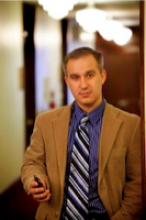
The status of computer programs, digital signal processing methods, and computer-related inventions as patentable subject matter is one of the most controversial legal, policy, and socio-economy debates of the 21st century. While there is clarity with regards to patent eligibility of Industrial Age (e.g., machine, article of manufacture, composition of matter) technology, there is uncertainty with regards to Information Age (e.g., smart embedded systems using programmed processors) technology that rely on software and digital signal processing methods. Given the complexity of the legal, policy, and economic issues involved, the patent offices and judicial bodies on both sides of the atlantic have struggled to formulate a clear test for determining whether and under what circumstances computer-related inventions (software) should be patent-eligible subject matter or be excluded. It is commonly believed (by inventors, business, and patent professionals) that there are significant differences between the patent eligibility for computer programs among the US and European jurisdictions from EPC signatory countries. Is this true or perhaps just a myth?
Dr. Mateo Aboy serves as the Vice President for Research at the Oregon Institute of Technology (Oregon Tech). He has also served as the Associate Provost (2011-2015) with responsibilities as the chief academic and chief operating officer for the Oregon Tech Wilsonville Campus. Major accomplishments in this area include being the Founding Vice President for the OT-Wilsonville Campus in Fall 2012, as well as developing and executing an academic strategy designed to transform the Oregon Tech Portland extension operations into an urban, industry-focused campus with over 1000 students enrolled in high-demand BS and MS degrees. As the VP for Research, Dr. Aboy promotes and oversees sponsored projects, innovation, and technology transfer at all Oregon Tech campuses. He founded and currently oversees the Office of Innovation & Tech Transfer (OITT) and the Office of Sponsored Projects & Grants Administration (SPA).
Dr. Aboy joined the faculty at Oregon Tech during the 2004/05 academic year as a Program Director for the Electronics program in Portland and has named the Department Chair in 2008. Under his leadership as the Electrical Engineering & Renewable Energy (EERE) Department Chair (2008-2012) and as a Portland Program Director (2005-2008), the EERE Department achieved significant strategic objectives, transforming from a technology department with a single program (BSEET) to a multidisciplinary engineering department offering full engineering degrees including a BS in Electrical Engineering, a BS in Renewable Energy Engineering, and a MS in Renewable Energy Engineering. During his tenure, the EERE department experienced remarkable growth, nearly doubling the overall student enrollment at Oregon Tech Portland Operations. Dr. Aboy is passionate about education, research, and innovation. While at Oregon Tech he taught over 130 courses, helped secure funding through grants in excess of $10.0M, published over 100 scholarly articles, and invented or co-invented over 40 patented or patent pending inventions. Dr. Aboy is a recipient of the 2013 Portland Business Journal 40 under 40 Award, Oregon Tech’s Faculty Achievement Award, and Intel Faculty Fellow Award. He is ranked as among the top engineering researchers (ranked 51 out of 48515 scholars) based on individual impact factor (2014 Microsoft Academic Research- Top World Researchers in Biomedical Engineering – Last 10 Years Ranking). He currently serves as the Chair of the Commercialization Research Committee at the Oregon Innovation Council (OregonINC), Chairman of APDM, and other public and private Board of Directors.
Science & Engineering Education
- PhD, Telecommunications Engineering, ETSET, University of Vigo, Spain, EU
- Prof. Cert., Sustainable Energy Conversion and Storage, Stanford University, CA, US- MS, Electrical & Computer Engineering, CECS, Portland State University, OR, US
- Ing, (Engineer) Telecommunications Engineering, MEC, Spain, EU
- BS, Electrical Engineering, CECS, Portland State University, OR, US
- BS, Physics with Minor in Mathematics, Portland State University, OR, US
Law, Patent Prosecution & IP Technology Transfer/Licensing Education
- SJD, Doctorate in Law & Juridical Science, Faculty of Law, University of Salamanca, ES, EU (IP)
- LLM, Spanish Law & Legal Practice, Faculty of Law, UNIR, ES (IP)
- LLB, English & EU La, Professional QLD, LLB, UCL/ULLS, University of London, UK, EU
- Cert., Negotiation, Harvard Law School, Harvard University, MA, US
- Law (Contract, Tort, Trusts, Land, EU Law), Faculty of Law, University of Cambridge, UK, EU
- RPA, Registered Patent Agent, United States Trademark & Patent Office, VA, US
- CLP, Certified Licensing Professional, Licensing Executives Society, VA, US
Management & Leadership Education
- MBA, International Management, RHUL, University of London, UK, EU
- Exec. Cert.,Management & Leadership, MIT Sloan, Massachusetts Institute of Technology, MA
- Cert., Strategy, Financial Analysis, Technical Management, MIT Sloan, MIT, MA, US




